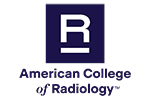Hemoptysis
Coughing up blood is a condition known as hemoptysis. Causes include acute respiratory tract infections, chronic obstructive pulmonary disease, tuberculosis, bronchiectasis (permanently damaged airways in the lung due to infection), and lung carcinomas (lung cancer or cancer that spread to the lungs). Hemoptysis is categorized as massive or nonmassive. Massive hemoptysis is life-threatening due to either asphyxiation (suffocation) or loss of blood.
With massive hemoptysis, the first course of action is to stabilize the individual. Once the individual is stabilized, arteriography bronchial with embolization, which is an imaging test that guides a catheter to block the bleeding blood vessel, is usually appropriate in combination with chest x-ray. CT angiography (CTA) chest with intravenous (IV) contrast (CT scan of arteries) and CT chest with IV are also usually appropriate. CT chest without contrast may be appropriate.
With nonmassive hemoptysis, CT chest with IV contrast, CTA chest with IV contrast, or chest x-ray is usually appropriate for initial imaging. Arteriography bronchial with embolization and CTA chest without IV contrast may be appropriate.
With recurrent hemoptysis, chest x-rays, arteriography bronchial with embolization, and CTA chest without IV contrast are usually appropriate. These procedures are complementary and are usually done together. CT chest with IV contrast may be appropriate.
This page was reviewed on July 10, 2023


